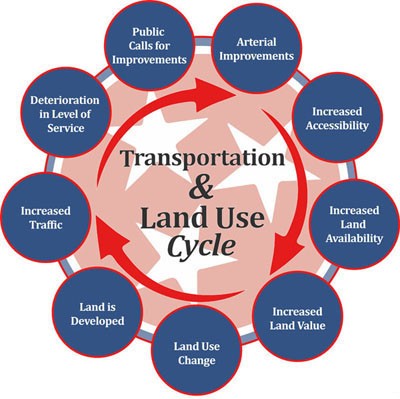Community Planning
The Community Planning section of the OCT provides resources to communities in the early stages of comprehensive plan development. The Office of Community Transportation has community transportation planners located in each of the four TDOT regions. Each planner establishes relationships with local partners and serves as an important link that helps to ensure that TDOT stays well informed of regionally significant developments. Once OCT coordinates with various divisions within TDOT, staff will be able to advise communities on cost-effective transportation investment options based on their land use vision.

The coordination of land use and transportation requires TDOT’s planners to assess and evaluate how local land use decisions affect the state’s transportation system and can increase viable options for people to access opportunities, goods, services, and other resources to improve their quality of life. In turn, the department should be aware of the effects the existing and future transportation systems may have on land use development demand, choices, and patterns.
Community planners provide tools and resources to local partners to outline comprehensive, long-term transportation goals based on a vision for their communities. Staff is responsible for the development of rural regional transportation plans and major thoroughfare plans, in addition to updating state aid and functional classification documents.
OCT plays a key role as TDOT updates the Statewide Long Range Transportation Plan. Planners serve as primary contacts for regional public involvement initiatives such as our Book-A-Planner series. Additionally, they provide information at the community level to help develop or update the following programs and policies:
- Corridor Management Agreements
- Multimodal Initiatives
- Health and Transportation
- Livability and Sustainability
- Aging and Transportation
- Access Management
2018 Community Plans/Studies